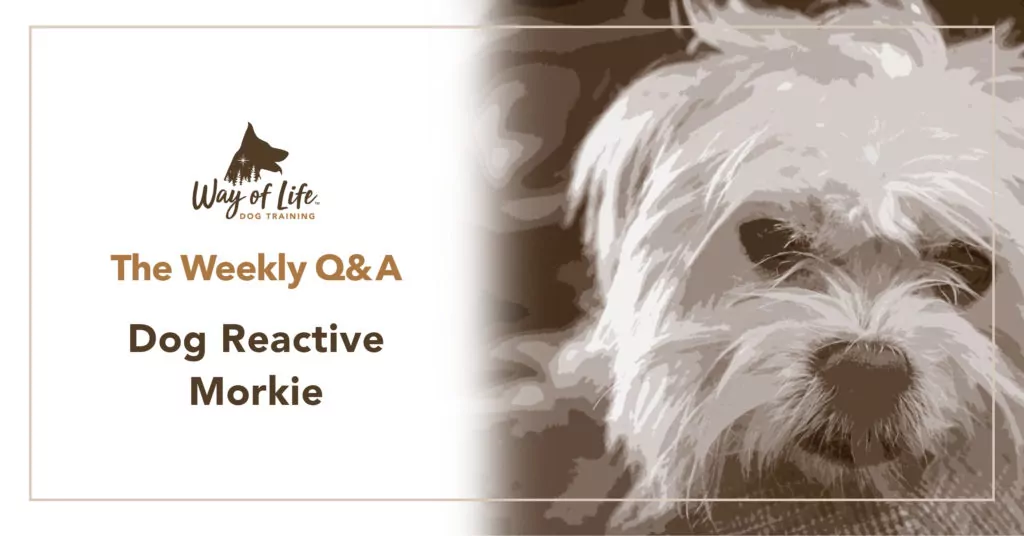
Q: Hello, I have a 10-month-old morkie, and lately she’s been very aggressive when she’s sees other dogs. Although she doesn’t bite, I know she’s wanting to play and the way she cries and starts barking makes it seem as if she’s aggressive. I’ve been struggling to take her for walks due to this. I now take her late at night so that we don’t come across any other dogs. Trying to control her when she’s barking at other dogs has started becoming a problem and is causing stress for both herself and myself. I was hoping if you would be able to help with this.
A: Thank you for contacting us about your morkie. For those unfamiliar, a “morkie” is a cross between a Maltese and a Yorkshire Terrier or Yorkie. A morkie is a “lap dog” that many people struggle with, because they see the cute pet but forget that there is actually a dog inside. Such is the plight of many little dogs.
Anyone who reads these posts knows that I appreciate knowing about the behavior that manifests, and that labels such as “aggressive” can help us comprehend a situation. But in my book, these behaviors do not represent the problem. Rather, behavioral issues speak to the problems that are happening beneath the surface because there is a way of life that needs reengineering.
Many small dogs are coddled and spoiled at home, but then we seem to have an expectation as a society that our dogs need to be friendly with other dogs—that they will want to “play” with other dogs they see. This is a recipe for the reactivity and potential for aggression that you are reporting. These issues highlight concerns about the dog’s way of life and are not necessarily inherent in the dog. They are telling us that we could do a better job with the context that drives behavior.
In my book, The Way of Life Method, I describe the four aspects of a dog’s way of life and how they should be managed with a young dog, a new dog, or an existing dog with issues. Regardless, we start from a place of seeing that dog as a juvenile. Your morkie is a juvenile in age. She is also very much a juvenile in behavior. Instead of trying to control behavior, I help people create a way of life that produces healthy behavior in all four aspects: managing space and boundaries; socialization; developing drives through exercise, training, and spirt; and, most importantly, the human’s mindset and relationship with the dog.
In brief, when you’re getting started you keep things simple, structured, and successful. This means having the dog on a schedule that includes time for themselves crated or alone in addition to their time with us, physical and mental exercise, and gradual participation in family life. Taking walks at night to avoid confrontations is also appropriate. If you happen to have a private yard, you could also stay on your property for a while to help bring down the angst that the dog has been experiencing.
To find out more about how to raise a sound, strong, and spirited pup, please download our free Puppy Primer PDF: